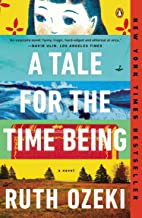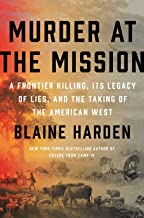The Obama Enigma, Hard History, Help Wanted
We made the drive back from the Wallowas to Seattle on Tuesday, after the Memorial Day traffic had subsided. We will return there for the balance of the summer, but are back to the big city for a couple weeks to celebrate the birthdays of grandchildren and enjoy several in-person gathering with friends.
On the long drive back we listened to Ezra Klein’s recent podcast with former President Obama. The President is doing interviews in support of the first volume of his memoirs, A Promised Land.
As always, Obama was eloquent and thoughtful. You can’t help but be impressed. Or at least I can’t. And yet, there’s a certain abidingly enigmatic quality about Obama.
To illustrate: he spoke of a time (presumably one of many) when his staff were discouraged about how things were going. To cheer them up he passed on something his “science advisor” had said. “There are more stars in the known universe than there are grains of sand on all the beaches of earth.” Or roughly that. Amazing to be sure.
He related it to his staff members in an effort to help them gain, or re-gain, perspective. But hearing it I wondered at what point does perspective — a good thing — flip over into something like despair or “nothing really means much of anything” and “all we are is dust in the wind”?
Klein begins a follow-up column, based on the interview, with some remarks made by Obama just after the stars and sand observation, to wit, “’My entire politics is premised on the fact that we are these tiny organisms on this little speck floating in the middle of space,’ Barack Obama told me, sitting in his office in Washington.”
Don’t get me wrong. I’m all for keeping things in perspective. Not sweating the small stuff and all that. But to me this provided a reminder of something curiously enigmatic about our former President. On one hand, his capacity to inspire, to touch us with his eloquence and his wisdom. But on the other, a kind of detachment, an above-it-all quality that is great for monks, philosophers and mystics. But is it what you want in a President?
When does perspective flip over into apathy, detachment or despair?
 In Ruth Ozeki’s novel A Tale for the Time Being almost all the characters are grappling with a kind of despair. It is set in both Japan and British Columbia. One of her characters, a Japanese man talked about the “terrible things” in Japanese history like the bombing of Hiroshima and Nagasaki. “We learn this is wrong, but that is an easy case because we Japanese people were the victims of it.
In Ruth Ozeki’s novel A Tale for the Time Being almost all the characters are grappling with a kind of despair. It is set in both Japan and British Columbia. One of her characters, a Japanese man talked about the “terrible things” in Japanese history like the bombing of Hiroshima and Nagasaki. “We learn this is wrong, but that is an easy case because we Japanese people were the victims of it.
“A harder case is when we study about the terrible Japanese atrocity like Manchu. In this case, we Japanese people committed genocide and torture of the Chinese people, so we learn we must feel great shame . . . but shame is not a pleasant feeling, and some Japanese politicians are always trying to change our children’s history textbooks [to eliminate the bad stuff].”
Here in the U.S. we are in the midst of a crash course on our own hard to face history. Earlier this week the 100th anniversary of one of those repressed stories, “The Tulsa Massacre,” was marked. Many white Americans hearing of it for the first time. We feel horror and shame, and rightly so. Americans have images of ourselves as “special,” and “the good people.” We need the hard truth, one named long ago by St. Paul, “All have sinned and fallen short of the glory of God.” If you take that as your starting point, rather than harboring illusions about human nature or national goodness, you are better equipped to face the hard stuff. Only by facing the hard stuff can healing begin to happen.
 Closer to home Blaine Harden’s new book Murder at the Mission suggests that Whitman College, a Northwest institution beloved by many — including us — suggests the school was built on a lie about the Whitmans. That’s hard to take. How do we face the hard truths? Only with honesty and grace. And some caution in applying today’s standards and sensitivities to the past and our forebears.
Closer to home Blaine Harden’s new book Murder at the Mission suggests that Whitman College, a Northwest institution beloved by many — including us — suggests the school was built on a lie about the Whitmans. That’s hard to take. How do we face the hard truths? Only with honesty and grace. And some caution in applying today’s standards and sensitivities to the past and our forebears.
Finally, a shout out — for your help. I’m doing a project for the Vancouver School of Theology (Vancouver, B.C.). The focus is their field education program. How effective is it? How can it be strengthened?
Do you know of seminaries that have a really great Field Ed program? If so, let me know. We want to learn from what others are doing as VST, a resurgent school, moves into the future. Or share with me about your own experiences of field ed, whether as a student, supervisor or congregant. Gratefully . . .
![Anthony B. Robinson [logo]](https://www.anthonybrobinson.com/wp-content/themes/anthonybrobinson/images/logo.png)
![Anthony B. Robinson [logo]](https://www.anthonybrobinson.com/wp-content/themes/anthonybrobinson/images/logo-print.png)